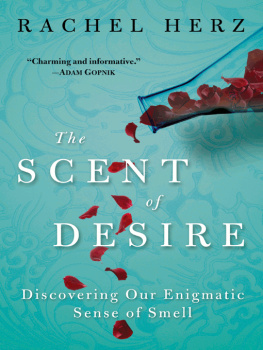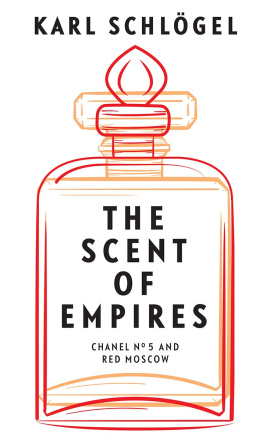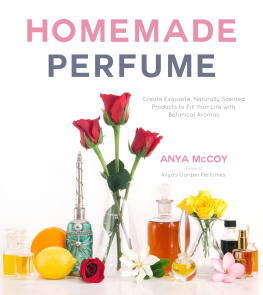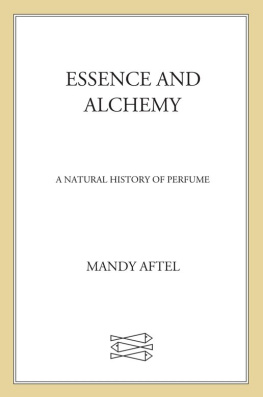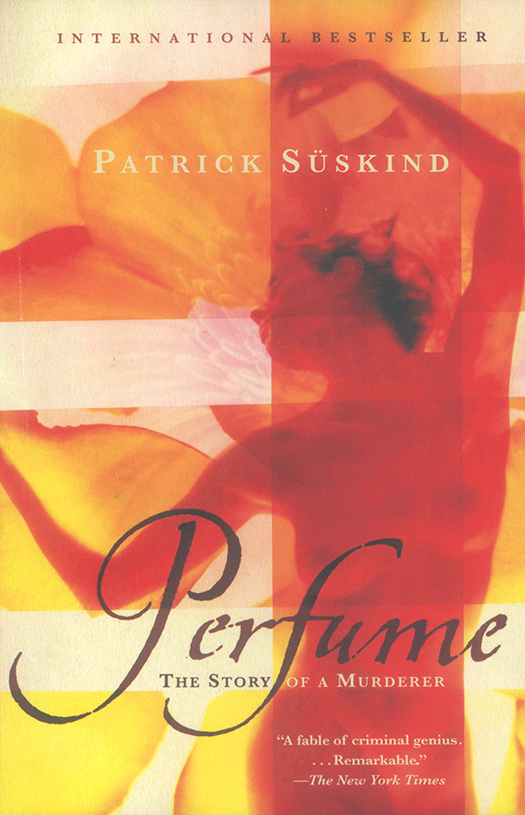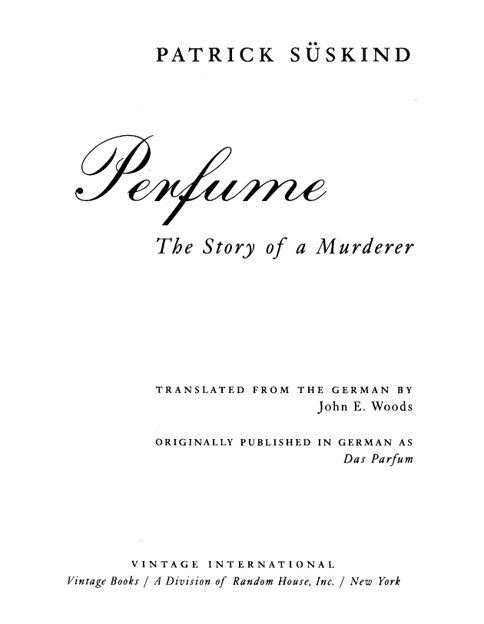Mr. Sskind himself is a perfumer of language. A remarkable debut.
Beautifully researched brilliant.
Immensely seductive storytelling at its best.
Mesmerizing from first page to last a highly sophisticated horror tale.
An ingenious story about a most exotic monster Suspense builds up steadily.
Patrick Sskind was born in Ambach, near Munich, in 1949. He studied medieval and modern history at the University of Munich. His first play, The Double Bass, written in 1980, became an international success: performed in Germany, in Switzerland, at the Edinburgh Festival, in London, and at the New Theatre in Brooklyn. His first novel, Perfume, became an internationally acclaimed bestseller. He is also the author of The Pigeon, Mr. Summers Story, and a collection of essays titled Three Stories and a Reflection. He is coauthor of the enormously successful German television series Kir Royal. Mr. Sskind lives and writes in Munich.
FIRST VINTAGE INTERNATIONAL EDITION, FEBRUARY 2001
Copyright 1986 by Alfred A. Knopf
All rights reserved under International and Pan-American Copyright Conventions. Published in the United States by Vintage Books, a division of Random House, Inc., New York, and simultaneously in Canada by Random House of Canada Limited, Toronto. Originally published in Switzerland in German as Das Parfum by Diogenes Verlag, Zurich, in 1985. Copyright 1985 by Diogenes Verlag AG. This translation first published in hardcover in the United States by Alfred A. Knopf, a division of Random House, Inc., New York, in 1986.
Vintage is a registered trademark and Vintage International and colophon are trademarks of Random House, Inc.
The Library of Congress has cataloged the Knopf edition as follows:
Sskind, Patrick
Perfume : the story of a murderer / Patrick Sskind.
Translation of Das Parfum.
p. cm.
ISBN: 0-394-55084-6
I. Title
PT2681.U74P313 1986
833.914dc21 86-45419
Vintage ISBN: 0-375-72584-9
eBook ISBN: 978-0-8041-5297-6
www.vintagebooks.com
v3.1
Contents
Part One
1
In eighteenth-century France there lived a man who was one of the most gifted and abominable personages in an era that knew no lack of gifted and abominable personages. His story will be told here. His name was Jean-Baptiste Grenouille, and if his namein contrast to the names of other gifted abominations, de Sades, for instance, or Saint-Justs, Fouchs, Bonapartes, etc.has been forgotten today, it is certainly not because Grenouille fell short of those more famous blackguards when it came to arrogance, misanthropy, immorality, or, more succinctly, to wickedness, but because his gifts and his sole ambition were restricted to a domain that leaves no traces in history: to the fleeting realm of scent.
In the period of which we speak, there reigned in the cities a stench barely conceivable to us modern men and women. The streets stank of manure, the courtyards of urine, the stairwells stank of moldering wood and rat droppings, the kitchens of spoiled cabbage and mutton fat; the unaired parlors stank of stale dust, the bedrooms of greasy sheets, damp featherbeds, and the pungently sweet aroma of chamber pots. The stench of sulfur rose from the chimneys, the stench of caustic lyes from the tanneries, and from the slaughterhouses came the stench of congealed blood. People stank of sweat and unwashed clothes; from their mouths came the stench of rotting teeth, from their bellies that of onions, and from their bodies, if they were no longer very young, came the stench of rancid cheese and sour milk and tumorous disease. The rivers stank, the marketplaces stank, the churches stank, it stank beneath the bridges and in the palaces. The peasant stank as did the priest, the apprentice as did his masters wife, the whole of the aristocracy stank, even the king himself stank, stank like a rank lion, and the queen like an old goat, summer and winter. For in the eighteenth century there was nothing to hinder bacteria busy at decomposition, and so there was no human activity, either constructive or destructive, no manifestation of germinating or decaying life that was not accompanied by stench.
And of course the stench was foulest in Paris, for Paris was the largest city of France. And in turn there was a spot in Paris under the sway of a particularly fiendish stench: between the rue aux Fers and the rue de la Ferronnerie, the Cimetire des Innocents to be exact. For eight hundred years the dead had been brought here from the Htel-Dieu and from the surrounding parish churches, for eight hundred years, day in, day out, corpses by the dozens had been carted here and tossed into long ditches, stacked bone upon bone for eight hundred years in the tombs and charnel houses. Only lateron the eve of the Revolution, after several of the grave pits had caved in and the stench had driven the swollen graveyards neighbors to more than mere protest and to actual insurrectionwas it finally closed and abandoned. Millions of bones and skulls were shoveled into the catacombs of Montmartre and in its place a food market was erected.
Here, then, on the most putrid spot in the whole kingdom, Jean-Baptiste Grenouille was born on July 17, 1738. It was one of the hottest days of the year. The heat lay leaden upon the graveyard, squeezing its putrefying vapor, a blend of rotting melon and the fetid odor of burnt animal horn, out into the nearby alleys. When the labor pains began, Grenouilles mother was standing at a fish stall in the rue aux Fers, scaling whiting that she had just gutted. The fish, ostensibly taken that very morning from the Seine, already stank so vilely that the smell masked the odor of corpses. Grenouilles mother, however, perceived the odor neither of the fish nor of the corpses, for her sense of smell had been utterly dulled, besides which her belly hurt, and the pain deadened all susceptibility to sensate impressions. She only wanted the pain to stop, she wanted to put this revolting birth behind her as quickly as possible. It was her fifth. She had effected all the others here at the fish booth, and all had been stillbirths or semi-stillbirths, for the bloody meat that emerged had not differed greatly from the fish guts that lay there already, nor had lived much longer, and by evening the whole mess had been shoveled away and carted off to the graveyard or down to the river. It would be much the same this day, and Grenouilles mother, who was still a young woman, barely in her mid-twenties, and who still was quite pretty and had almost all her teeth in her mouth and some hair on her head andexcept for gout and syphilis and a touch of consumptionsuffered from no serious disease, who still hoped to live a while yet, perhaps a good five or ten years, and perhaps even to marry one day and as the honorable wife of a widower with a trade or some such to bear real children Grenouilles mother wished that it were already over. And when the final contractions began, she squatted down under the gutting table and there gave birth, as she had done four times before, and cut the newborn things umbilical cord with her butcher knife. But then, on account of the heat and the stench, which she did not perceive as such but only as an unbearable, numbing somethinglike a field of lilies or a small room filled with too many daffodilsshe grew faint, toppled to one side, fell out from under the table into the street, and lay there, knife in hand.


